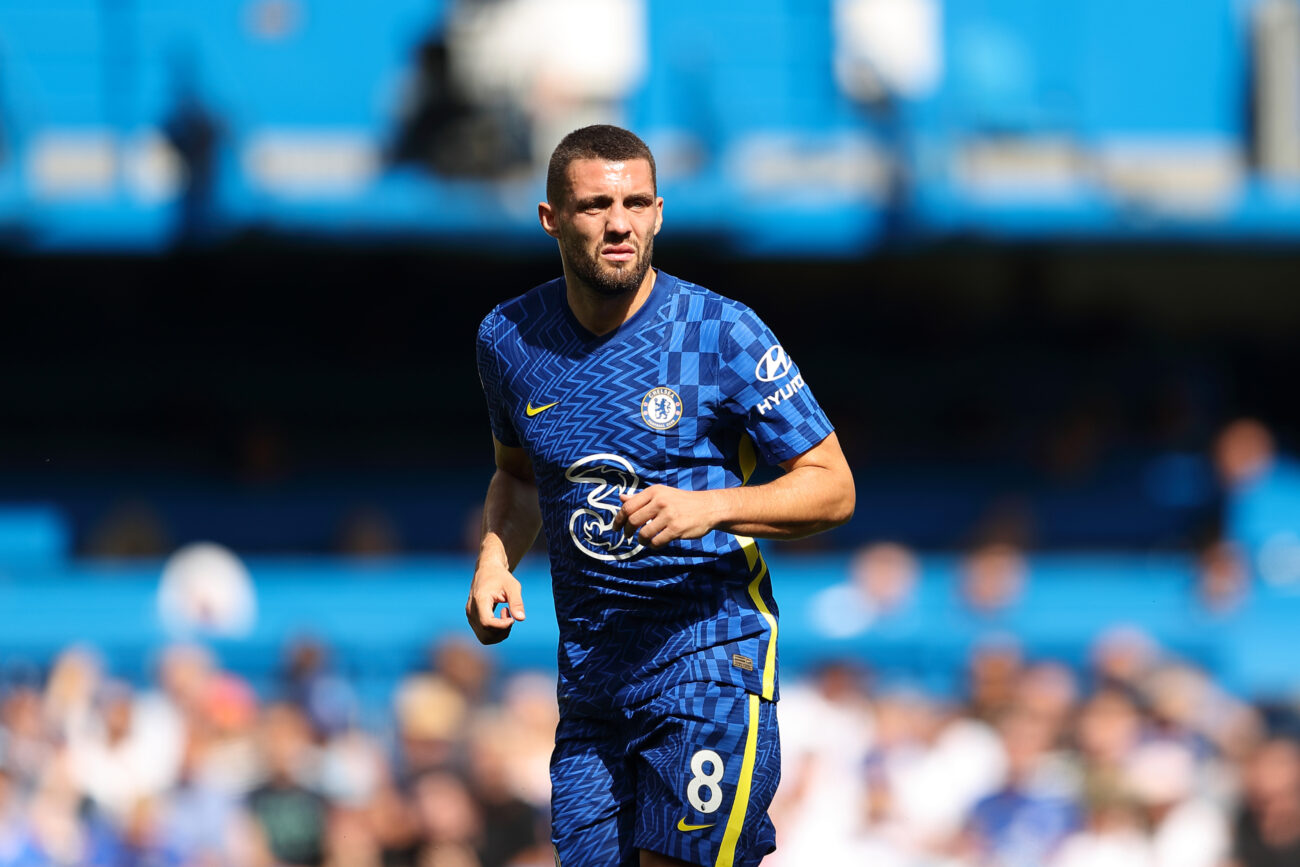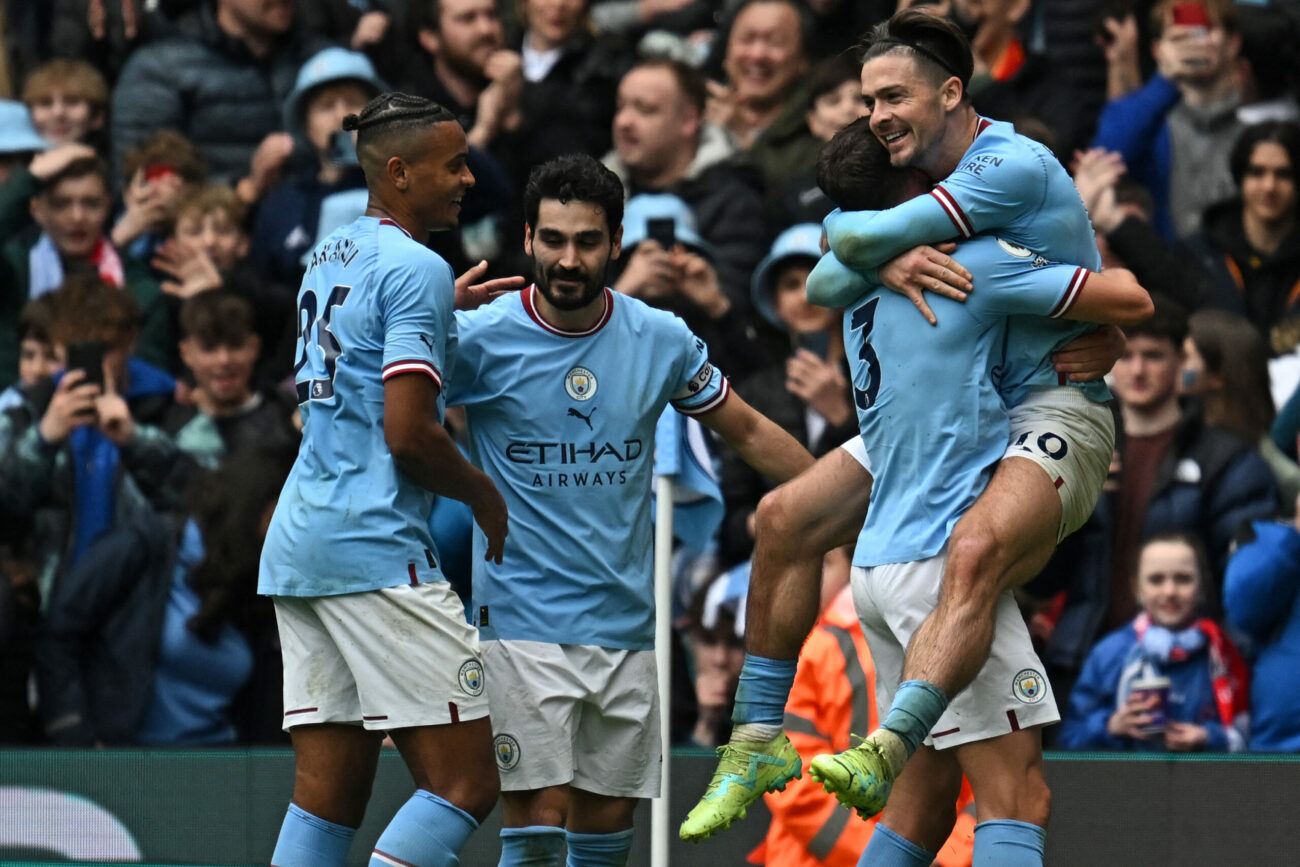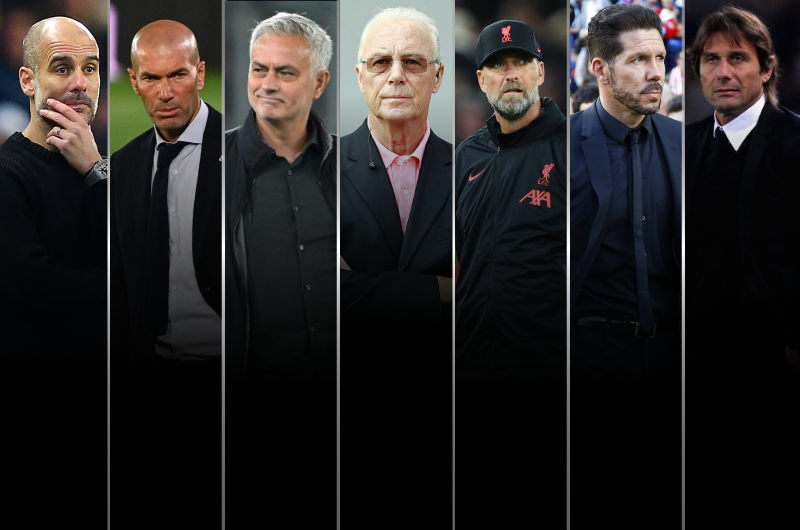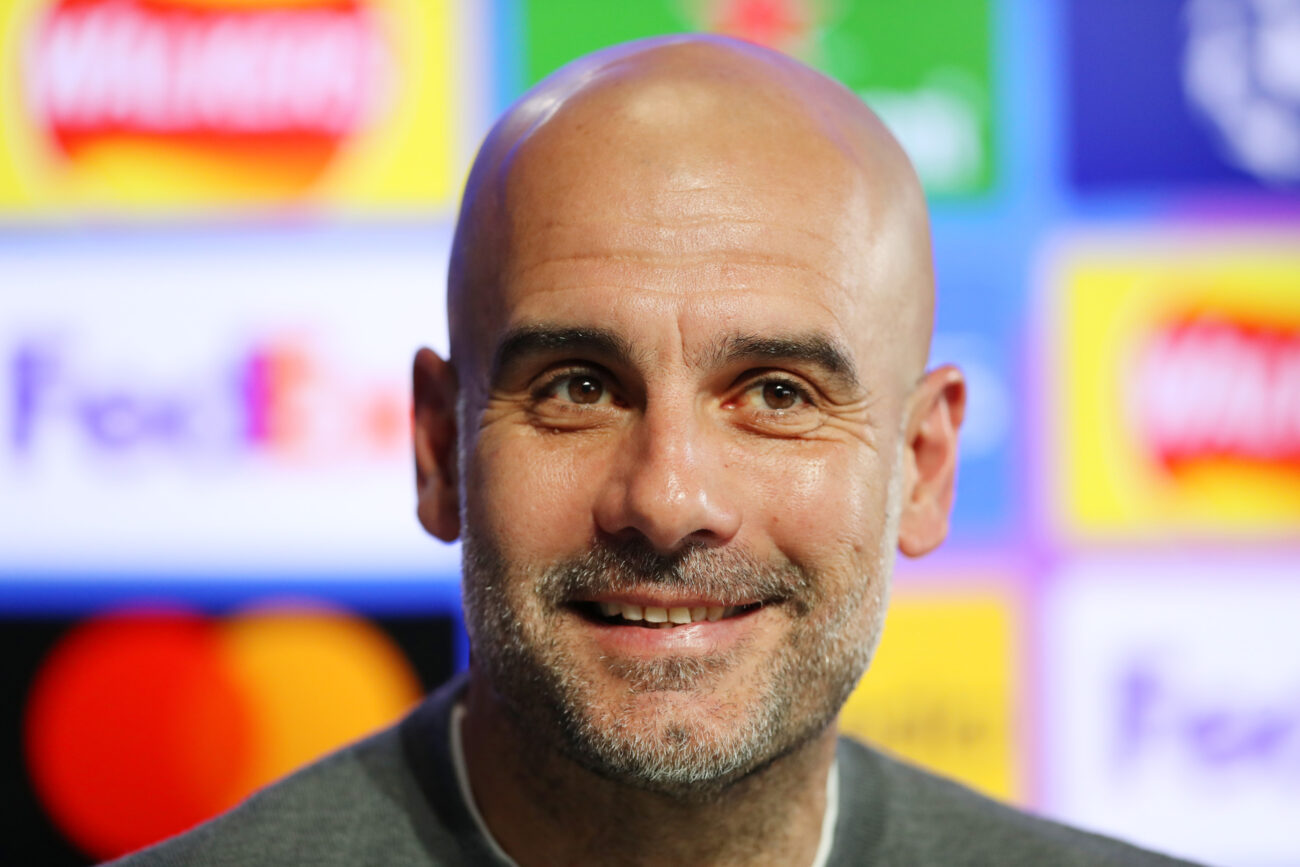Footballers turning into a coach is not a rare sight in the footballing world. There are many players who have been exceptional players and later on transitioned into a manager.
Frank Lampard is one of the latest examples that comes to my mind. He is one of the greatest midfielders in the history of England and Chelsea and is now a full-time manager at Everton. The midfield maverick has successfully transitioned from being a player to a manager.
Another example can be Liverpool’s great Steven Gerrard. Gerrard is an all-time Liverpool great who played for Liverpool from 1998 to 2015, winning nine trophies, including the UEFA Champions League, two FA Cups, and three League Cups. After retirement, the central midfielder became a manager. He started his managerial career with Scottish side Rangers FC and then Aston Villa, a club in English Premier League.
So, in this article, we take a look at the top 7 football players who transitioned into successful managers.
Zinedine Zidane
Zinedine Zidane was a star player for clubs like Juventus and Real Madrid before becoming a manager and leading Real Madrid to multiple Champions League titles.
Zidane was super successful as a player, with many accolades under his name, including FIFA World Player of the Year in 1998, 2000 and 2003, and winning the 1998 Ballon d’Or. Capped 108 times by France, Zidane won the 1998 FIFA World Cup, scoring twice in the final, and was named to the All-Star team. This triumph made him a national hero in France, and he received the Legion of Honour in 1998. He won UEFA Euro 2000 and was named Player of the Tournament. He also received the Golden Ball as Player of the Tournament at the 2006 World Cup, despite his infamous sending-off in the final against Italy for headbutting Marco Materazzi in the chest. He retired as the fourth-most capped player in French history.
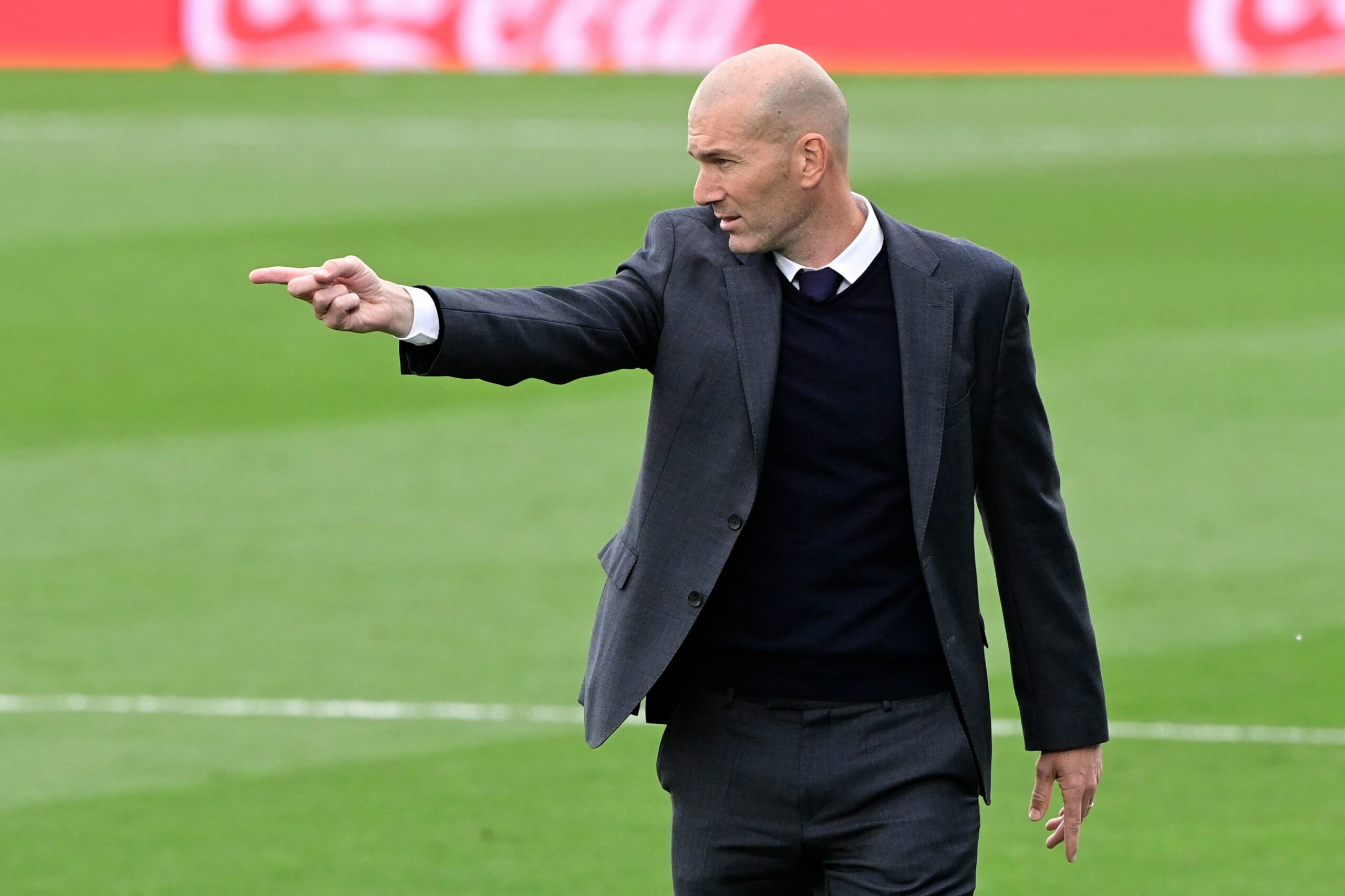
Real Madrid’s French coach Zinedine Zidane gesures during the Spanish league football match Real Madrid CF against Villarreal CF at the Alfredo di Stefano stadium in Valdebebas, on the outskirts of Madrid, on May 22, 2021. (Photo by JAVIER SORIANO / AFP) (Photo by JAVIER SORIANO/AFP via Getty Images)
After retiring as a player, Zidane began his coaching career at Real Madrid Castilla. He remained in the position for two years before taking the helm of the first team in 2016. In his initial two and a half seasons, Zidane became the first coach to win the Champions League three times in a row, won the UEFA Super Cup and FIFA Club World Cup twice each, and a La Liga title and a Supercopa de España.
He resigned in 2018 but returned to the club in 2019 and won another La Liga and a Supercopa de España title before leaving again in 2021.
Pep Guardiola
Pep Guardiola, who played as a midfielder for Barcelona and other teams before becoming a highly successful manager, is known for his attacking, possession-based style of play.
As a player, Guardiola was a defensive midfielder who usually played a deep-lying playmaker’s role. He spent most of his career with Barcelona, forming a part of Johan Cruyff’s Dream Team, winning the club’s first European Cup in 1992 and four successive Spanish league titles from 1991 to 1994. He captained the team from 1997 until he departed from the club in 2001. Guardiola then had stints with Brescia and Roma in Italy, Al-Ahli in Qatar, and Dorados de Sinaloa in Mexico. He was capped 47 times for the Spanish national team and appeared at the 1994 FIFA World Cup and UEFA Euro 2000. He also played friendly matches for Catalonia.
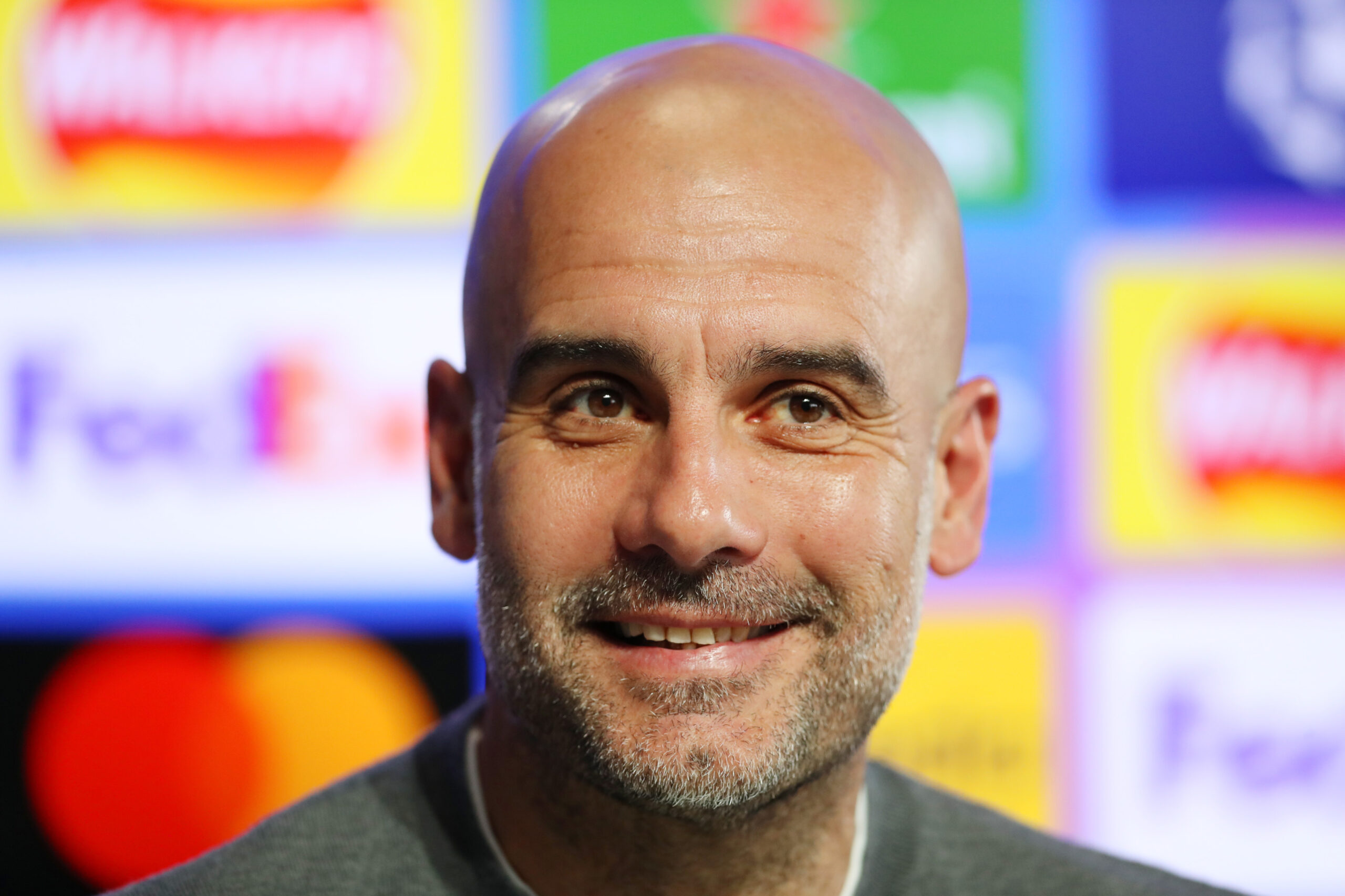
MANCHESTER, ENGLAND – MAY 03: Pep Guardiola, Manager of Manchester City looks on during a press conference at Manchester City Football Academy on May 03, 2022 in Manchester, England. Manchester City will play their UEFA Champions League Semi Final second leg match against Real Madrid on May 04, 2022 in Madrid, Spain. (Photo by Charlotte Tattersall/Getty Images)
He began his tenure as a manager with Barcelona B, with whom he won a Tercera División title. He took charge of the first team in 2008. In his first season, he led Barcelona to the treble of La Liga, the UEFA Champions League, and the Copa del Rey, becoming the youngest manager to win the aforementioned European competition. In 2011, after leading the club to another La Liga and Champions League double, Guardiola was awarded the Catalan Parliament’s Gold Medal, their highest honour. He was also named the FIFA World Coach of the Year the same year. He ended his four-year Barcelona stint in 2012 with 14 honours, a club record.
After Barcelona, Guardiola shifted his base to Bayern Munich. Guardiola won the Bundesliga in each of his three seasons as Bayern manager, including two domestic doubles. He left the Bavarians for Manchester City in 2016 and guided them to a Premier League title in his second campaign in charge, breaking numerous domestic records as the team became the first to attain 100 league points. To date, he has won four Premier League titles, four EFL Cups, and the FA Cup, including a domestic treble in the 2018–19 season. He also led the club to its maiden UEFA Champions League Final in 2021.
Diego Simeone
Diego Simeone was a defender for teams like Inter Milan and Atletico Madrid before becoming the manager of Atletico and leading the team to multiple domestic and international titles.
In his club career that started in 1987, Simeone played in Argentina, Italy, and Spain for Vélez Sarsfield, Pisa, Sevilla, Atlético Madrid, Inter Milan, Lazio, and Racing Club. He won a domestic double with Atlético Madrid in 1996, the UEFA Cup with Inter in 1998, another domestic double with Lazio in 2000, the 1999 UEFA Super Cup and the 2000 Supercoppa Italiana. Simeone was capped over 100 times for the Argentina national team and represented the country at 1994, 1998, and 2002 FIFA World Cups and in four editions of the Copa América, winning the tournament in 1991 and 1993.
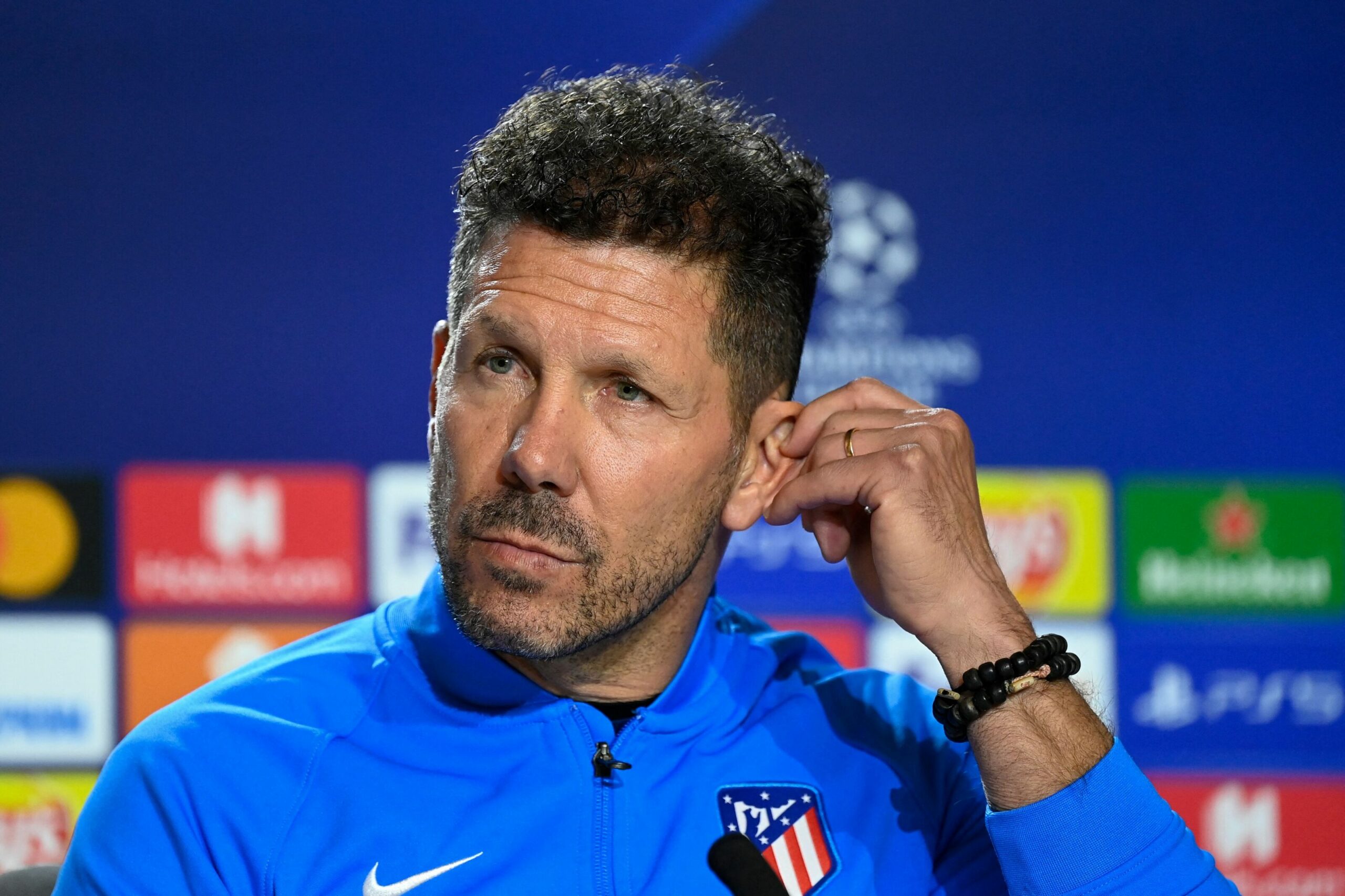
Atletico Madrid’s Argentinian coach Diego Simeone addresses a press conference in Madrid on February 22, 2022, on the eve of their UEFA Champions League round of 16 first leg football match against Manchester United. (Photo by OSCAR DEL POZO / AFP) (Photo by OSCAR DEL POZO/AFP via Getty Images)
After retiring as a player, Simeone coached Argentine sides Racing Club, Estudiantes de La Plata, River Plate, and San Lorenzo and Italian club Catania before joining Spanish club Atlético Madrid in 2011.
He won the Argentine Primera División both with Estudiantes and River Plate and has had his biggest managerial success with Atlético Madrid, winning La Liga twice, the Copa del Rey, two UEFA Europa Leagues, two UEFA Super Cups, as well as being runner-up of the UEFA Champions League twice. Simeone is the longest-serving manager in La Liga, having stayed over a decade at Atlético.
Jose Mourinho
Jose Mourinho played as a midfielder for various Portuguese clubs before becoming a manager and winning league titles with teams like Chelsea, Real Madrid, and Manchester United.
As a player, Jose Mourinho was a part of a lot of Portuguese teams, including Rio Ave B, Belenenses B, Sesimbra and Comércio e Indústria. Mourinho didn’t quite have a great playing career. However, his managerial career flourished better than expected.
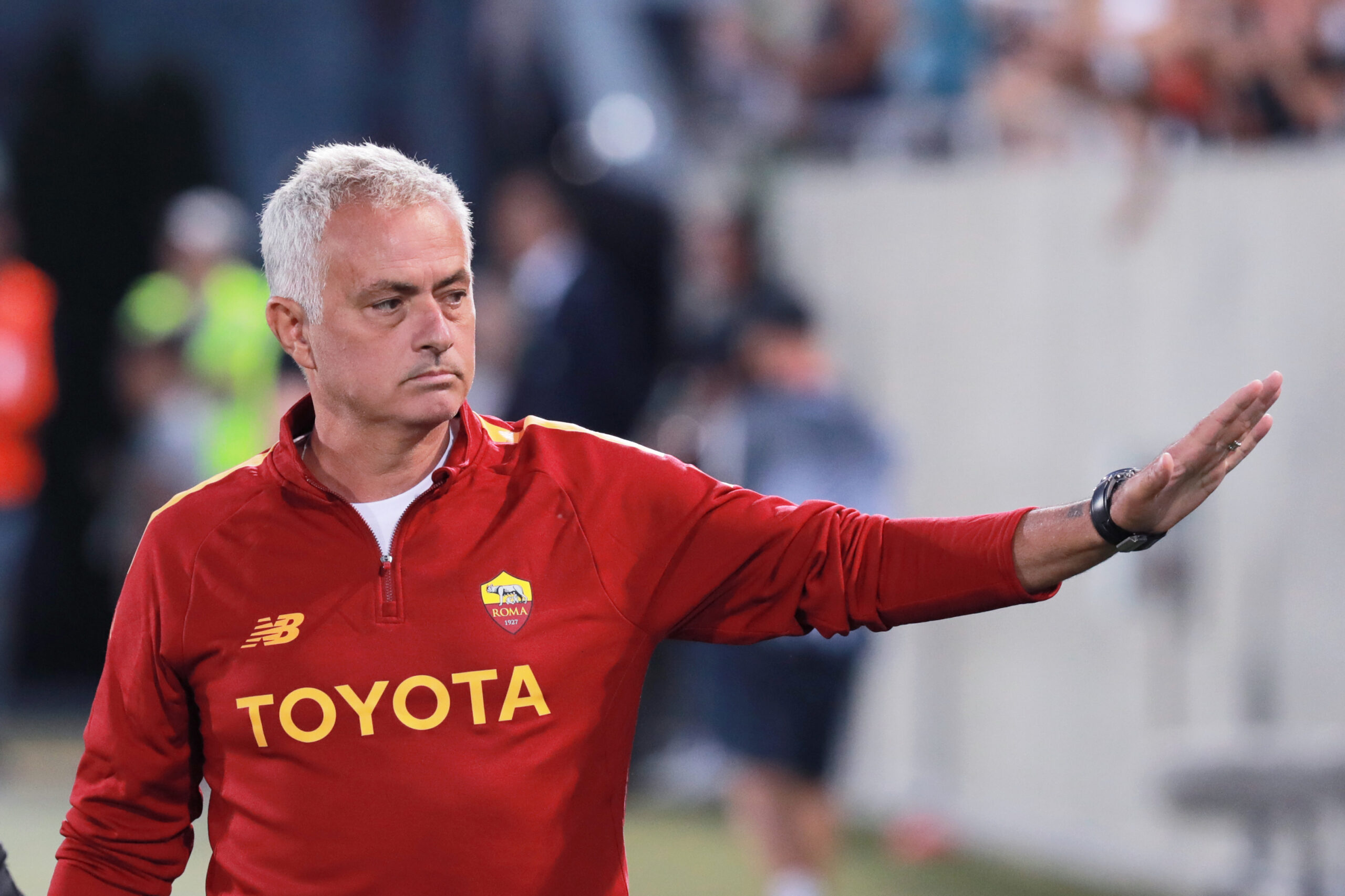
RAZGRAD, BULGARIA – SEPTEMBER 08: AS Roma team coach Jose Mourinho reacts ahead the UEFA Europa League group C match between PFC Ludogorets Razgrad and AS Roma at Ludogorets Arena on September 08, 2022 in Razgrad, Bulgaria. (Photo by Vasile Mihai-Antonio/Getty Images)
Mourinho started his managerial career with Benfica and later had a term with the Portuguese club União de Leiria. After impressing with brief stints at Benfica and União de Leiria, Mourinho returned to Porto as a manager in 2002, winning the Primeira Liga twice, a Taça de Portugal, the UEFA Cup and the UEFA Champions League, Porto’s first European Cup title since 1987.
The success made him a big name in the coaching world. After winning the Champions League with Porto, Mourinho was approached by Chelsea owner Roman Abramovich to manage the club in 2004. With the club, he won two Premier League titles, an FA Cup and two League Cups in his three seasons at the club, before he departed in 2007 amid reports of disagreements with club owner Roman Abramovich.
In 2008, Mourinho joined the Italian club Inter Milan, where he won Serie A twice, including a European treble of Serie A, the Coppa Italia and the UEFA Champions League in 2010, a first for an Italian club. This made him one of five coaches to have won the European Cup with two clubs, and later that year, earned him the first FIFA World Coach of the Year. Mourinho then moved to Real Madrid, where he won La Liga in 2011–12 with a record points tally, becoming the fifth coach to have won league titles in four countries. He also won a Copa del Rey and a Supercopa de España.
Mourinho left Real Madrid in 2013 and rejoined Chelsea, where he won another league title and League Cup, but was dismissed in 2015 after a poor run of results. Remaining in England, he was appointed at Manchester United and Tottenham Hotspur, respectively, but his tenure at both clubs was relatively short-lived and ended acrimoniously. Despite this, he won the UEFA Europa League, League Cup and FA Community Shield in his first season with Manchester United and led Tottenham to the final of the League Cup. He was soon hired by Roma, leading them to win the inaugural UEFA Europa Conference League — this made him the first manager to both reach and win the final of a major European competition with four different clubs, the third manager to have won all three major European club competitions and the first to achieve the UEFA treble by winning the Champions League, UEFA Cup/Europa League and Europa Conference League.
Once dubbed “The Special One” by the British media, Mourinho is one of the most decorated managers and is widely considered among the greatest managers of all time.
Jurgen Klopp
Jurgen Klopp was a professional player in Germany before becoming a manager and leading Borussia Dortmund and Liverpool to numerous titles.
As a player, Klopp spent most of his playing career at Mainz 05. He was initially deployed as a striker but was later moved to defence. He was part of clubs like 1. FC Pforzheim, Eintracht Frankfurt II, Viktoria Sindlingen, Rot-Weiss Frankfurt and Mainz 05.
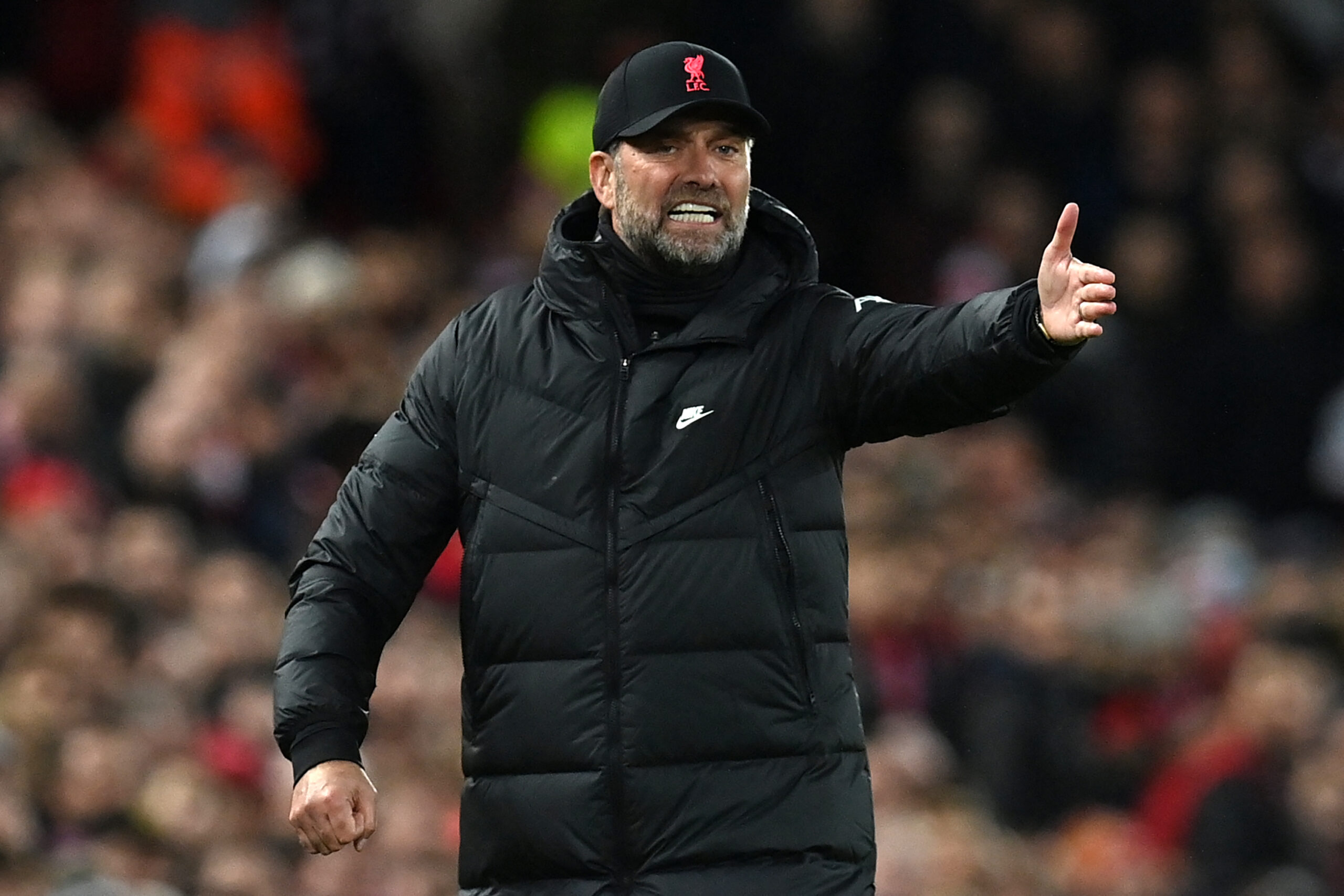
Liverpool’s German manager Jurgen Klopp gestures on the touchline during the English Premier League football match between Liverpool and Arsenal at Anfield in Liverpool, north west England on November 20, 2021. – – RESTRICTED TO EDITORIAL USE. Photo by Paul ELLIS / AFP) / RESTRICTED TO EDITORIAL USE.
After retiring, Klopp started assisting Mainz 05 and secured their promotion in 2004. After suffering relegation in the 2006–07 season and being unable to achieve promotion, Klopp resigned in 2008 as the club’s longest-serving manager. He then became manager of Borussia Dortmund, guiding them to the Bundesliga title in 2010–11 before winning Dortmund’s first-ever domestic double during a record-breaking season. Klopp also guided Dortmund to a runner-up finish in the 2012–13 UEFA Champions League before leaving in 2015 as their longest-serving manager.
After managing a couple of German clubs, Klopp decided to try his luck in Britain. Klopp was appointed manager of Liverpool in 2015. He guided the club to successive UEFA Champions League finals in 2018 and 2019, winning the latter to secure his first – and Liverpool’s sixth – title in the competition. Klopp’s side finished second in the 2018–19 Premier League, registering 97 points, the then third-highest total in the history of the English top division and the most by a team without winning the title. The following season, Klopp won the UEFA Super Cup and Liverpool’s first FIFA Club World Cup before delivering Liverpool’s first Premier League title, amassing a club record of 99 points and breaking a number of top-flight records. These achievements won him back-to-back FIFA Coach of the Year awards in 2019 and 2020.
Franz Beckenbauer
Franz Beckenbauer is considered one of the greatest footballers of all-time and matched that success as a manager. He is one of only three men to win the World Cup as a player and manager.
Beckenbauer had a terrific playing career. He is widely regarded to be one of the greatest players in the history of the sport. A versatile player who started out as a midfielder, Beckenbauer made his name as a central defender. He is often credited with having invented the role of the modern sweeper.
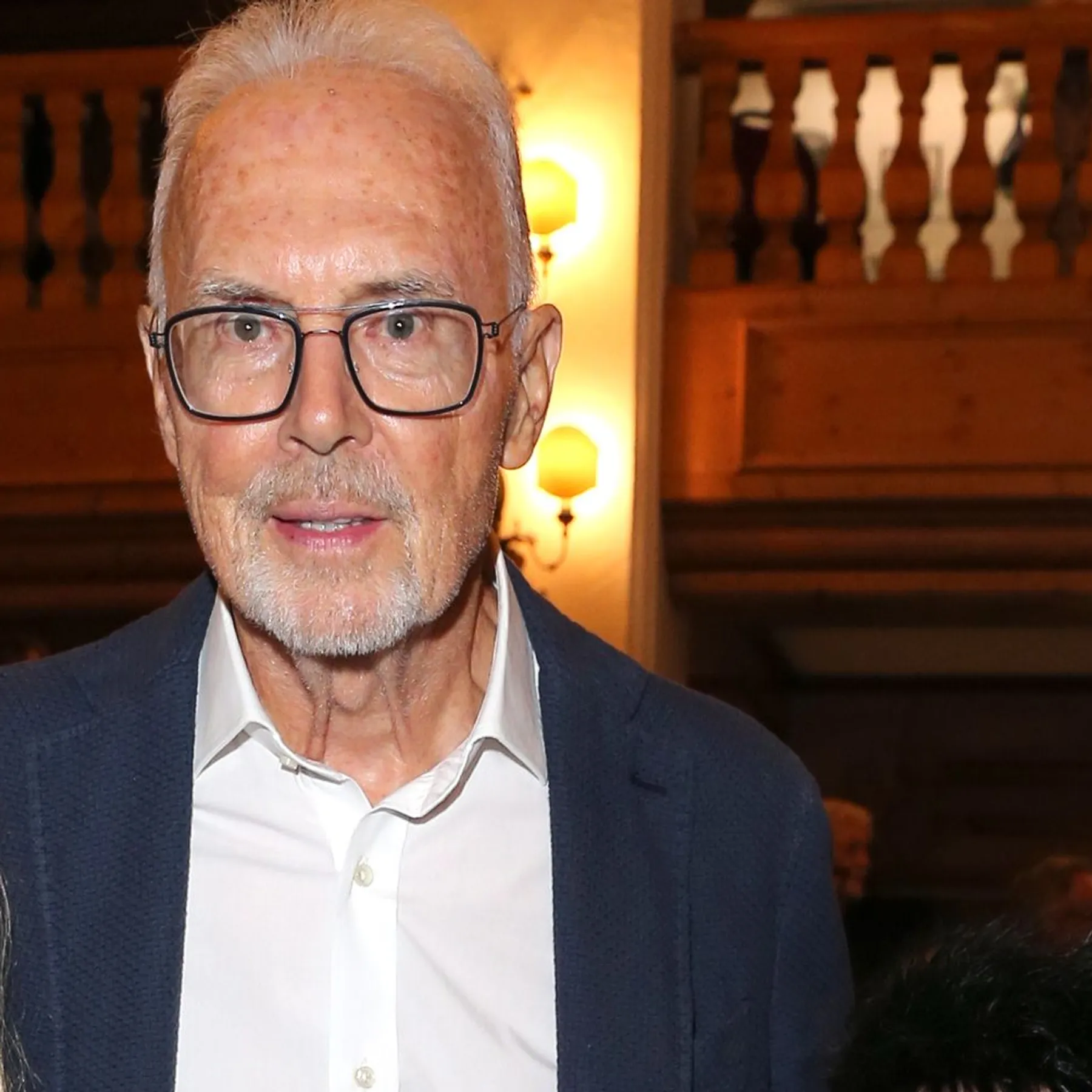
Twice named European Footballer of the Year, Beckenbauer appeared 103 times for West Germany and played in three FIFA World Cups and two European Championships. He is one of three men, along with Brazil’s Mário Zagallo and France’s Didier Deschamps, to have won the World Cup as a player and as a manager; he lifted the World Cup trophy as captain in 1974 and repeated the feat as a manager in 1990.
Antonio Conte
Antonio Conte is an Italian professional football manager who currently manages the English Premier Club Tottenham Hotspur.
Playing as a midfielder, Conte began his career at local club Lecce and later became one of the most decorated and influential players in the history of Juventus, having won, among others, five Serie A titles, one Coppa Italia, one UEFA Champions League and one UEFA Cup, also becoming the team’s captain from 1996 until 2001. He also played for the Italy national team and participated in the 1994 FIFA World Cup and UEFA Euro 2000, where Italy finished runners-up on both occasions.
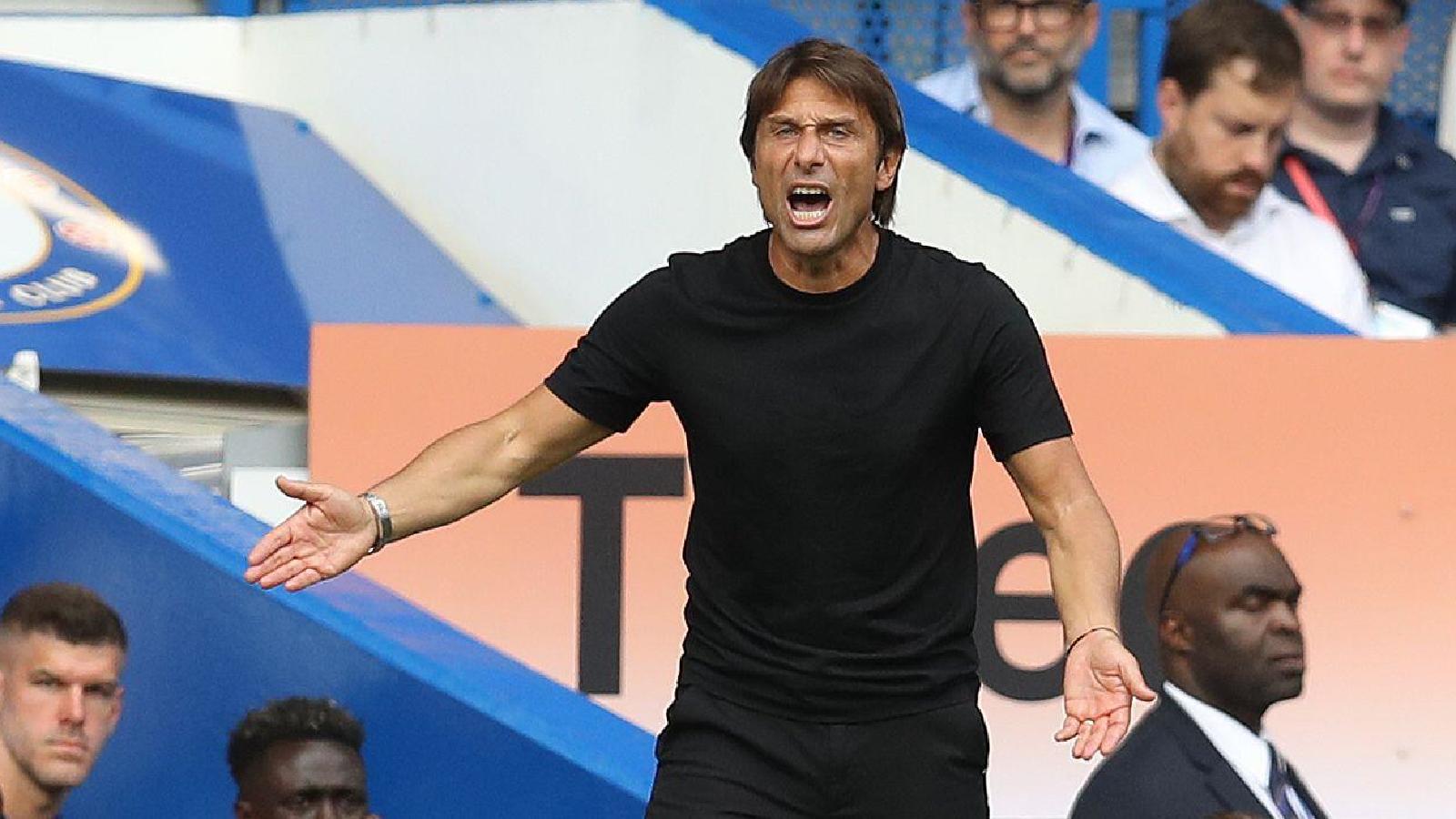
2JNYEM3 London, England, 14th August 2022. Antonio Conte, Manager of Tottenham Hotspur during the Premier League match at Stamford Bridge, London. Picture credit should read: Paul Terry / Sportimage
His managerial career started in 2006, leading Bari to a Serie B title, and Siena to promotion from the same division two years later. He took over at Juventus in 2011 and won three consecutive Serie A titles before taking charge of the Italian national team in 2014 until UEFA Euro 2016, where he led them to the quarter-finals. He then became Chelsea manager and led them to the Premier League title in his first season in charge, then winning the FA Cup in his second season but being dismissed as they finished fifth in the league.
Conte joined Inter Milan a year later, leading the team to the UEFA Europa League final in his first season, then winning the 2020-2021 Serie A title in his second season before stepping down in mutual consent. He is currently managing the English Premier League club Tottenham Hotspur.
So who among the managers who were once a player is your favourite?

